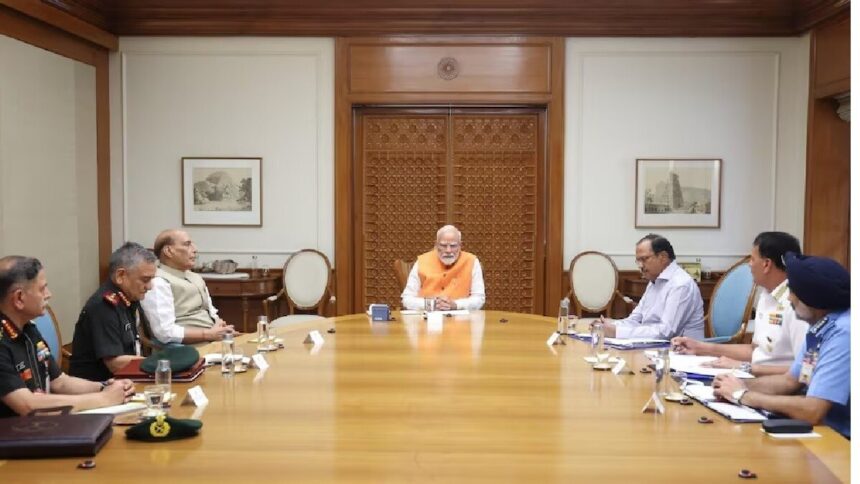Amid rising tensions with Pakistan following the Pahalgam terror attack, the Indian government has revamped the National Security Advisory Board (NSAB), bringing in top former officials from the armed forces, intelligence, diplomacy, and police services. The move comes as part of a broader national security recalibration being driven by Prime Minister Narendra Modi in the wake of the deadliest terror strike on civilians in recent years.
Former Research and Analysis Wing (R&AW) chief Alok Joshi has been appointed as the new Chairman of the NSAB. He will lead a seven-member board comprising retired senior officers from India’s military, police, and foreign services. These include former Western Air Commander Air Marshal PM Sinha, former Southern Army Commander Lt Gen AK Singh, and Rear Admiral Monty Khanna from the armed forces.
The board also includes Rajiv Ranjan Verma and Manmohan Singh, both retired officers from the Indian Police Service, and B Venkatesh Varma, a retired Indian Foreign Service officer.
The timing of the board’s reconstitution is significant. On Wednesday, Prime Minister Modi chaired two back-to-back meetings — first with the Cabinet Committee on Security (CCS) and then with the Cabinet Committee on Political Affairs (CCPA), known informally as the ‘super cabinet’. These high-level deliberations follow Modi’s earlier statement that India would respond to the Pahalgam killings with decisive action.
During a high-level meeting with Defence Minister Rajnath Singh, National Security Advisor Ajit Doval, Chief of Defence Staff General Anil Chauhan, and the three service chiefs, the Prime Minister said, “They have complete operational freedom to decide on the mode, targets and timing of our response.”
Modi vowed to track down the perpetrators of the Pahalgam attack and their backers “to the ends of earth” and “inflict the harshest punishment on them beyond their imagination.” The attack, which left 26 civilians—mostly tourists—dead, has sparked widespread outrage across India.
The government has already initiated a series of retaliatory steps against Pakistan, including placing the Indus Waters Treaty under review. The Cabinet Committee on Political Affairs, which last convened in 2019 after the Pulwama attack, has been reactivated in the aftermath of the latest assault, hinting at potential strong measures ahead.
Earlier in the day, Union Home Secretary Govind Mohan chaired a separate high-level meeting attended by chiefs of the paramilitary forces and senior security officers, further underscoring the Centre’s focused response to the crisis.








